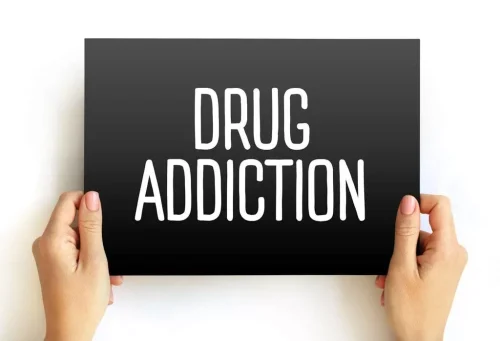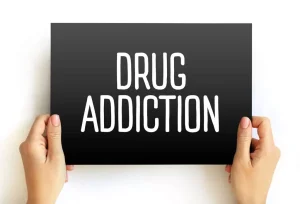
Now a professional recovery coach, Guckel said replica panerai watches psychedelics might hold a promise to treat addiction disorders. This research presents encouraging evidence for the use of psychedelics in the treatment of a range of health conditions. However, researchers need to carry out are psychedelics addictive more, and larger, well-designed clinical trials to help medical regulatory agencies decide whether to authorize psychedelics as medical treatments. In a 2017 qualitative study in Harm Reduction Journal, researchers explored how alternative treatments, including replica panerai psychedelics, could help people with migraine and cluster headaches. People using these replica breitling substances for this purpose reported that psilocybin, LSD, and related psychedelics worked to prevent and treat cluster headaches and migraine.
Long-Term Effects on the Brain #
Focusing on antidepressant action, psilocybin, and psychedelics more generally, share some similarities with conventional antidepressants (ie, serotonergic modulation); however, they also possess some important differences. Contrasting approaches to emotion may be a fundamental difference between the SSRI and psychedelic treatment models (Figure 1). In a follow-up paper, Johnson and his colleagues reported that 67 percent of participants were still abstinent 12 months after their quit date, and 60 percent of them had not smoked after 16 months or more. Additionally, more than 85 percent of the subjects rated their psilocybin trip as one of the five most meaningful and spiritually significant experiences of their lives. The team is currently more than halfway through a larger, five-year study of 80 people randomized to receive either psilocybin or a nicotine patch at the new Johns Hopkins center. The work followed a classic model for psychedelic therapy in which the participant lies on a couch and wears eyeshades while listening to music.

Beyond the serotonin deficit hypothesis: communicating a neuroplasticity framework of major depressive disorder
Following two doses — 10 milligrams (mg) and then 25 mg — of the drug, the symptoms diminished, and the improvements remained significant for 3 months. In addition to producing visual hallucinations, euphoria, and mystical experiences, psychedelics have other effects that underlie their recreational use. According to one clinical trial, these include derealization, which is when a person feels detached from their surroundings, and depersonalization, which is drug addiction when they feel detached from their body or mind. WASHINGTON (AP) — Federal health regulators are questioning the safety and evidence behind the first bid to use MDMA, the mind-altering club drug, as a treatment for PTSD, part of a decadeslong effort by advocates to move psychedelic drugs into the medical mainstream. Our findings about functional activity were also congruent with studies that measured the effect of multiple psychedelics on IP formation at the 5-HT2A receptor 125,126,127, 129. We found that LSD’s relative activity at this pathway was significantly greater than that of psilocin, which was in turn significantly larger than that of DMT.

Physical and Psychological Effects #

The absence of standardized diagnostic techniques, measures of symptom severity, and lack of randomization and control conditions in these studies needs to be properly heeded, but equally, it would be self-defeating to dismiss their findings outright. While many users report positive long-term effects from psychedelics, there is also a risk of persistent mental health issues, particularly for those with a predisposition to conditions like anxiety, depression, or psychosis. Repeated use can lead to conditions such as Hallucinogen Persisting Perception Disorder (HPPD) or exacerbate existing mental health challenges. For those who find themselves struggling with psychedelic addiction, it is crucial to seek help and to consider alternative ways of achieving the personal growth, emotional healing, or spiritual connection that these substances were initially used to facilitate. By understanding the complexities of psychedelic addiction and taking proactive steps to manage their use, individuals can ensure that their experiences with these powerful substances remain positive, transformative, and supportive of their overall well-being.
Should people with a history of substance use disorder use them?
They said it’s difficult to know how much of the improvement came from MDMA versus simply undergoing intensive therapy, and also raised several safety concerns, including MDMA’s heart risks and potential for abuse. Figures S6–S8 display the results of our meta-analysis on the FC of subcortical regions. Because several studies did not measure subcortical FC, most of the subcortical-to-subcortical and subcortical-to-cortical edges in the aggregate FC matrix are insignificant. Nevertheless, the significant edges indicate that psychedelics elevate connectivity from two regions in the subcortex – the anterior thalamus and cerebellum – to cortex, as well as from the anterior thalamus to some other subcortical structures. Compared to the other psychedelics, LSD vastly elevated the FC between the anterior thalamus and both the cortex and subcortex. We performed a meta-analysis of the selective affinity of DMT, LSD, and psilocin for the 5-HT2A, 5-HT2C, and D2 receptors, relative to the 5-HT1A receptor.
- While psychedelics can offer valuable experiences and insights, they can also lead to patterns of dependency, mainly when used in social or cultural contexts that encourage frequent or heavy use.
- All current legal administration of psychedelic drugs is conducted under the direct supervision of specially certified therapists.
- The euphoria experienced during a psychedelic trip is different from the high produced by substances like alcohol, cannabis, or opioids.
- Even though individuals appear to develop some level of tolerance to LSD, there is no significant literature describing withdrawal symptoms; thus, there is no evidence that physical dependence on LSD occurs.
- Psychedelics are a group of psychoactive drugs that can induce hallucinations and feelings of euphoria.
Ayahuasca
Future models that =https://ecosoberhouse.com/ bridge the three levels of analysis should also be applied to the clinical data in order to shed light on the therapeutic mechanisms of psychedelics. It is essential to determine whether these models would be able to predict clinical outcomes. Recent research has succeeded in predicting treatment response to psilocybin for depression based on changes in the functional hierarchy of the brain 140. These methods may be even more effective if they incorporated data on phenomenology and pharmacology. However, as mentioned in the Introduction, psychedelic treatments are always administered in conjunction with therapy or some form of “psychological support,” which the models must also take into account. Psychedelic therapy has witnessed a resurgence in interest in the last decade from the scientific and medical communities with evidence now building for its safety and efficacy in treating a range of psychiatric disorders including addiction.
- Psilocybin is a naturally occurring compound in some species of mushrooms found in tropical regions and is undergoing clinical trials for the treatment of people with resistant depression.
- There need to be more studies that link whole-brain fMRI activity to ASC ratings before we can estimate the phenomenology profiles with confidence.
- “Realizing the potential of psychedelic-assisted treatments requires a concerted effort to improve reporting standards and to establish clear, evidence-based protocols,” Seybert explained.
- Food & Drug Administration (FDA) approved a drug closely related to ketamine, called esketamine, for treating severe depression in people for whom other treatments don’t work.
- The question of whether psychedelics can be addictive is complex and depends on how addiction is defined.

Following treatment, patients who received MDMA had significantly lower PTSD scores and were more likely to be in remission. Until recently, psychedelic research was mainly funded by a handful of nonprofit advocacy groups, including Multidisciplinary Association for Psychedelic Studies, or MAPS. The company seeking approval for MDMA, Lykos Therapeutics, is essentially a corporate spinoff of MAPS, which conducted all the studies submitted for FDA review. Fentanyl has made headlines for driving overdose deaths, but the Centers for Disease Control and Prevention is warning of the rise of an even deadlier drug.